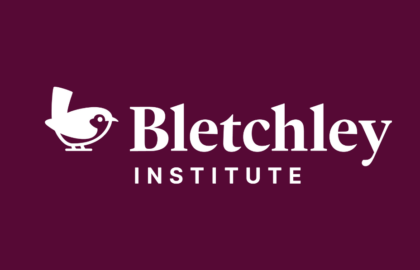How to Become a Software Engineer Without a Degree

Want to explore a career in software engineering? Read our guide on how to become a software engineer without a degree—no college required.
Pursuing a traditional 4-year degree in computer science has long been the traditional career path for software engineers. But today, many software engineers are finding alternative paths to their careers. In fact, according to a 2022 survey, only 41.32% of software developers have a bachelor’s degree.
With the evolving tech landscape, software engineering has become one of the most rapidly growing fields. There are more computer games, web and mobile apps, network control systems, and operating systems being developed than ever before, and they aren’t going anywhere anytime soon.
As industry opportunities expand, so do the pathways to this lucrative career. Here’s how to become a software engineer without a degree, including the necessary skills you need to acquire and tips to help pick the right route for you.
What we cover here:
- What Skills Do Software Engineers Need?
- How Do You Get a Software Engineering Job?
- How Do You Become a Software Engineer Without Earning a College Degree?
- Pros and Cons of Earning a Degree, Self-Learning, and Software Engineering Bootcamp
- Flatiron’s Software Engineering Course
- Apply to Jumpstart Your Software Engineering Career
What Skills Do Software Engineers Need?
Software engineers need computer programming, coding, object-oriented design, and software development skills. Other life and social skills such as problems solving, logical thinking, and great communication can help you get a leg up in the software engineering field as well.
These required skills can be learned quickly, especially if you exhibit the 7 signs you could be a successful software engineer. Here are the key skills you will need for this career:
Essential Tech Skills
- Programming Languages: Proficiency in languages such as Java, Python, Ruby, C++, or JavaScript are crucial for designing and implementing software solutions.
- Software Testing: Knowledge of basic and advanced debugging and testing techniques is required, even in the age of AI testing.
- Software Development: Engineers familiar with the ins and outs of developing software have a more solid understanding of the structures behind software performance.
- Object-Oriented Design (OOD): Essentially, this approach involves defining, understanding, constructing, and identifying the objects of a system.
Other Skills
- Problem-solving: The ability to analyze complex problems and break them into manageable components is crucial for software engineering.
- Communication: Excellent written and verbal communication skills can help engineers articulate ideas and job requirements to coworkers and clients.
- Teamwork: Many aspects of the career require collaboration, especially on larger projects that involve the efforts of a team.
But how does one go about acquiring the skills needed to become a software engineer, especially if you don’t have 4 years to go back and earn a traditional degree?
How Do You Become a Software Engineer Without Earning a College Degree?
To become a software engineer without a degree, pursue self-study and alternative professional development (such as online courses, workshops, learning platforms, and bootcamps) to learn the necessary skills and knowledge needed to enter the field. Doing so helps you to gain practical experience while building a comprehensive foundation for a career in software engineering.
Important Courses for a Software Engineer
A well-rounded curriculum should include foundational programming and specialized courses that include theoretical concepts and practical applications. This varies but may include:
- Computer/Software Science
- Data Structures and Algorithms
- Object-Oriented Programming
- Front End Development
- Back End Development
- Artificial and Machine Learning
Ultimately, the best programs should send you off with a final portfolio that demonstrates your high-level, ready-to-work knowledge, skills, and experience.
Pros and Cons of Earning a Degree, Self-Learning, and Software Engineering Bootcamp
There are several pathways to becoming a Software Engineer, with pros and cons for each avenue. Here’s an overview.
Earning a Traditional 4-Year Degree
Pros:
- Comprehensive education
- Clear credibility
- In-depth, diverse knowledge
- Built-in networking opportunities
Cons:
- Time-consuming
- Often prohibitively expensive
- Less focus on practical skills
- Little real-world experience
- Curriculum may not address new technologies
Self-Learning
Pros:
- Learn at your own pace
- Cost-effective, especially compared to 4-year tuition
- Ability to tailor learning to interests
- Source learning materials from open-source contributors
Cons:
- May lack a well-rounded structure
- Potential gaps in knowledge without guidance
- Must be incredibly dedicated, committed, and self-motivated
Software Engineering Bootcamp
Pros:
- Accelerated pace to gain skills quickly
- Emphasis on practical, real-world skills and application
- Networking and career support
- Guided learning and accountability structure
- Less expensive than a traditional 4-year degree program
- Flexibility to complete software engineering courses online
- Up-to-date curriculum addresses new and evolving technologies
Cons:
- Financial investment
- Time commitment to complete coursework
Flatiron’s Software Engineering Course
College courses can be beneficial, but there are quicker ways to make it from beginner to a high-paying career in software engineering. That’s where Flatiron’s Software Engineering course comes in.
Our bootcamp teaches you the skills needed to become a successful software engineer, with courses that cover everything from design to maintenance. In as little as 15 weeks, you can learn everything you need to know to break into the industry and land your first job. Download the Software Engineering Syllabus to see the skills you’ll learn.
Need some flexibility as you complete the course? Both part- and full-time course schedules are available, with online and in-person campuses that fit your schedule and availability.
Apply to Jumpstart Your Software Engineering Career
Whether you’re a budding full stack developer or completely inexperienced, our Software Engineering program will take you from beginner to industry-ready in as little as 15 weeks.
Apply to Flatiron School today and get started toward a fulfilling career in tech.
Disclaimer: The information in this blog is current as of July 3, 2023. Current policies, offerings, procedures, and programs may differ.



